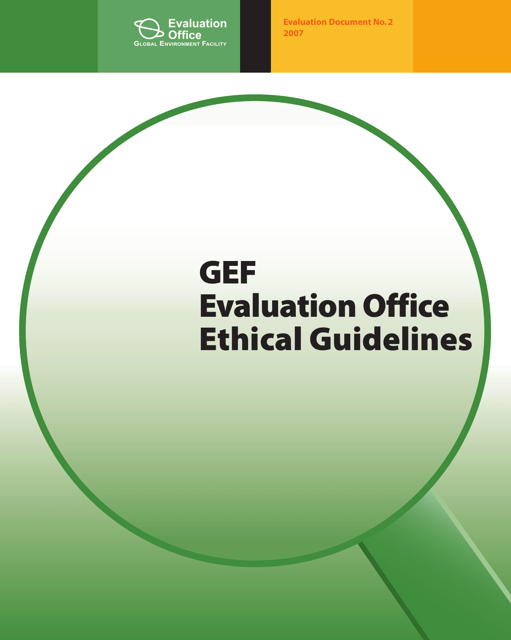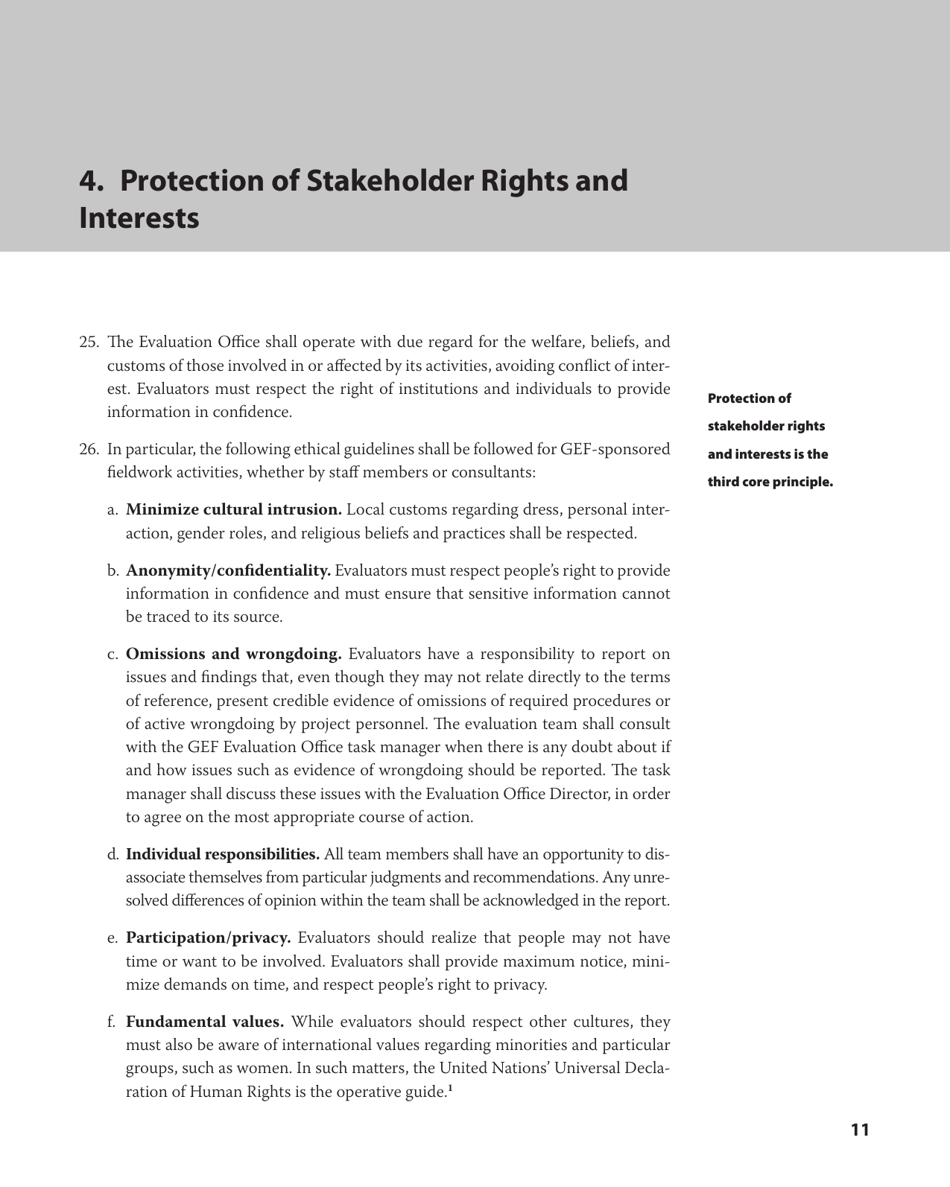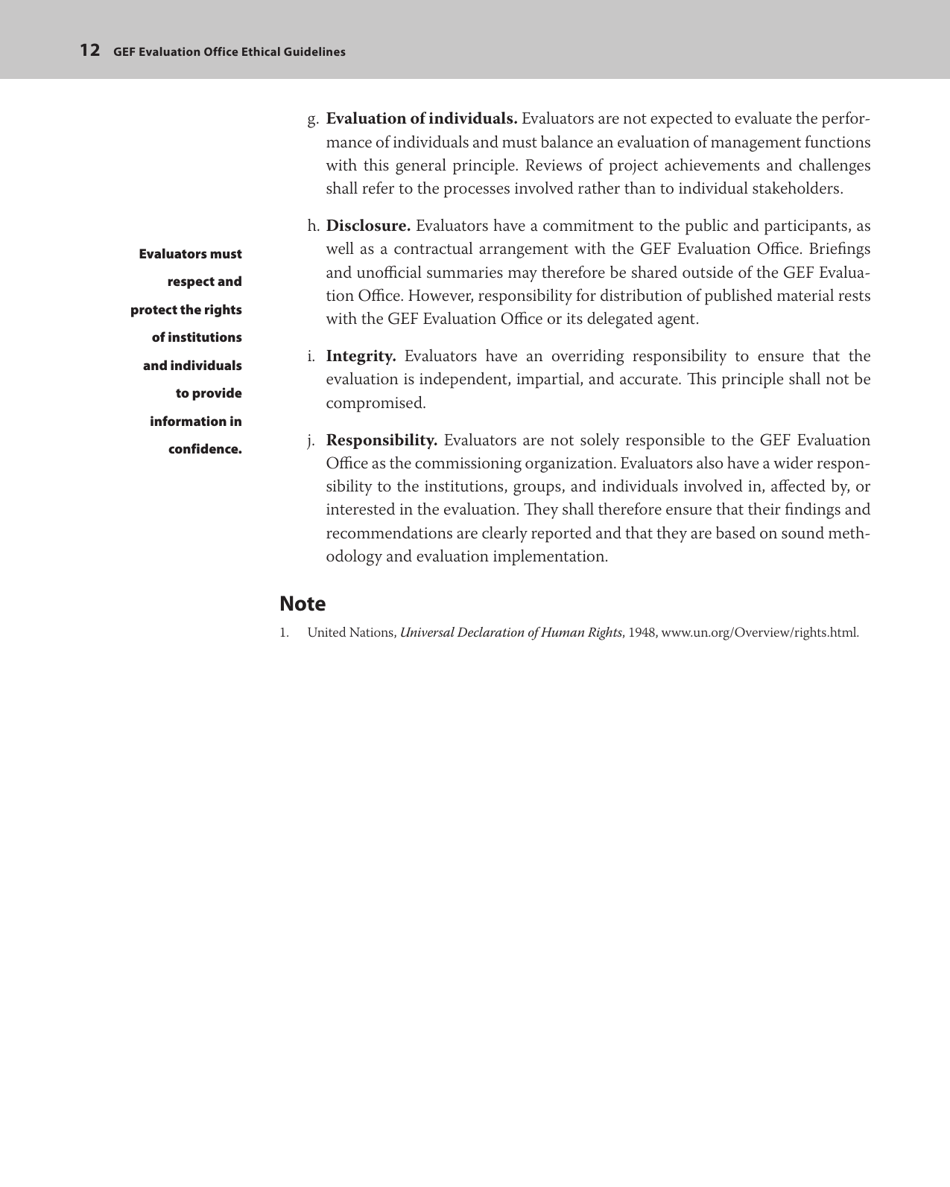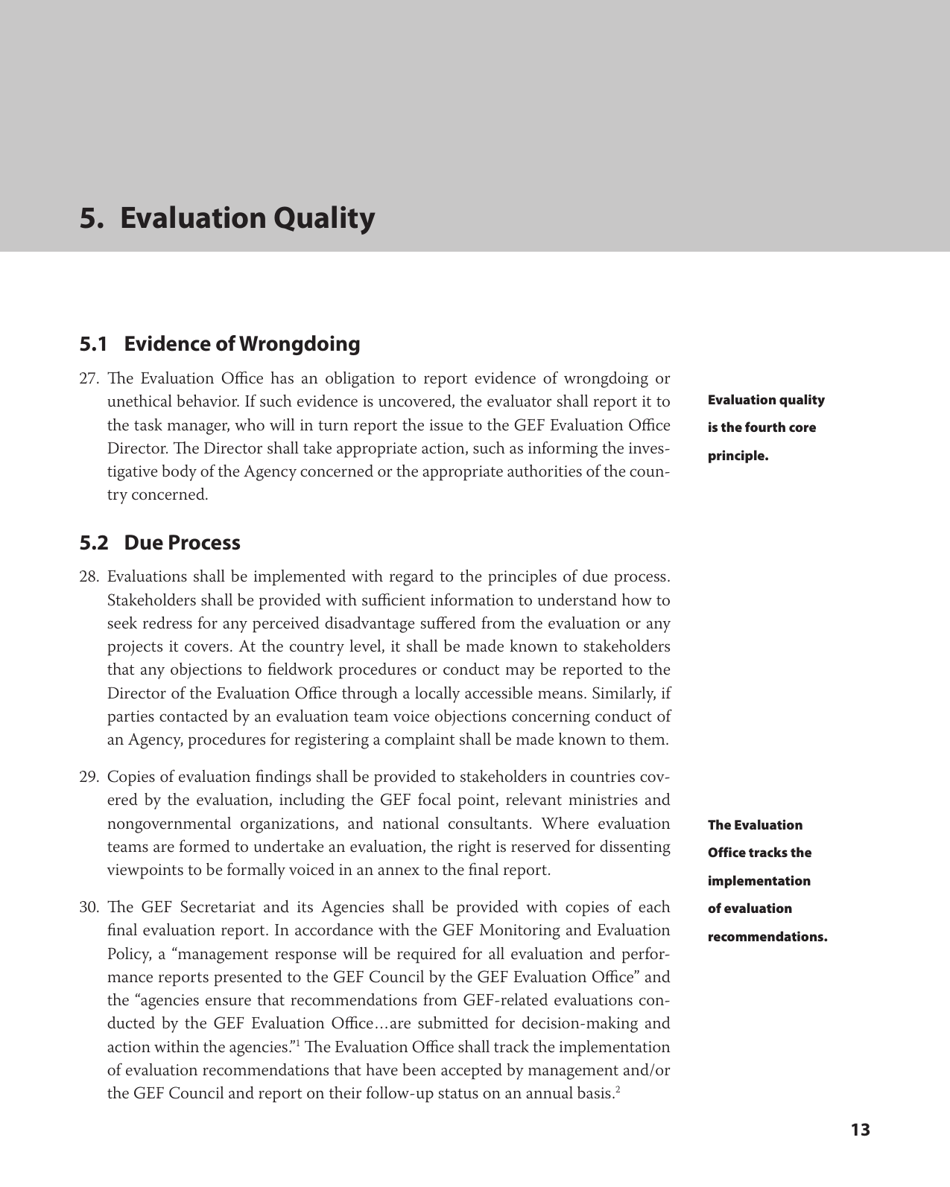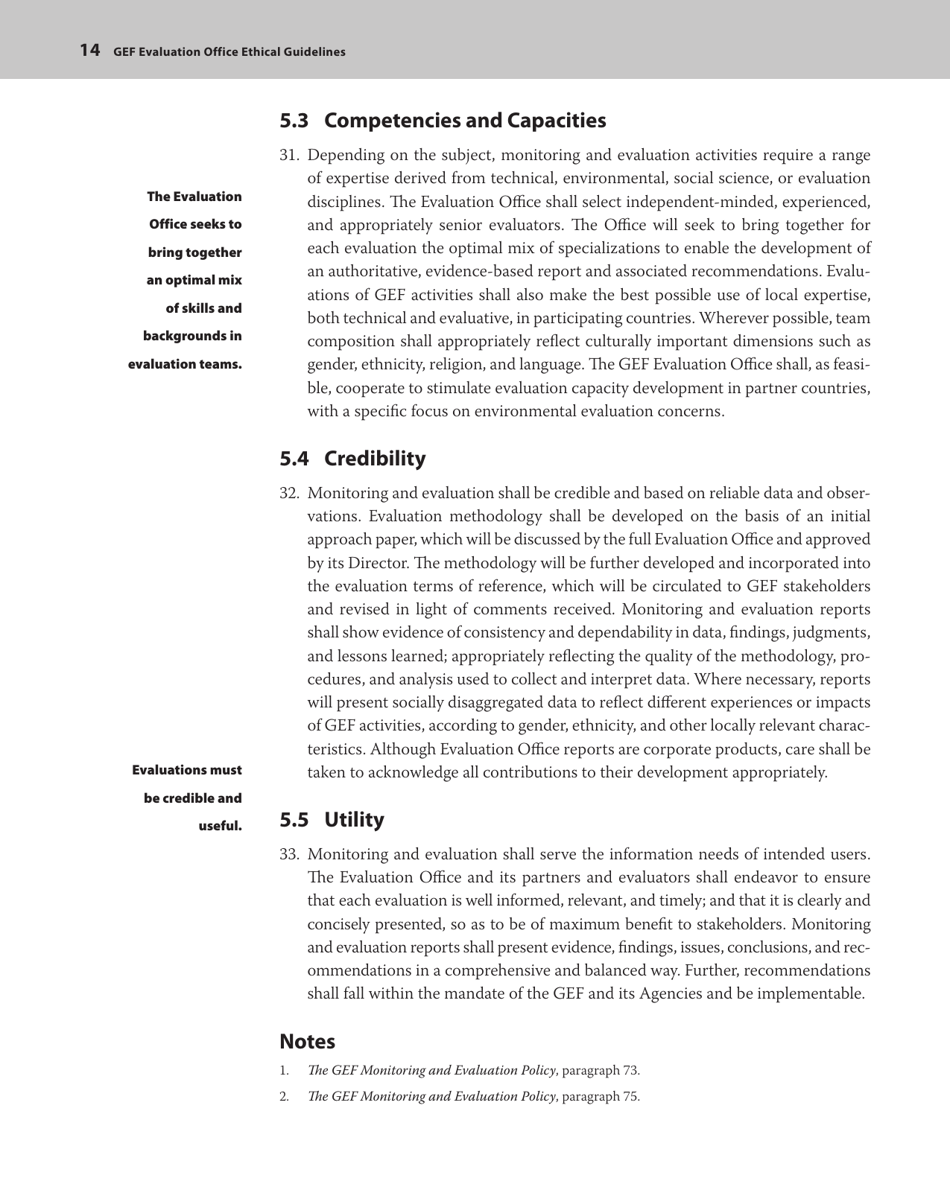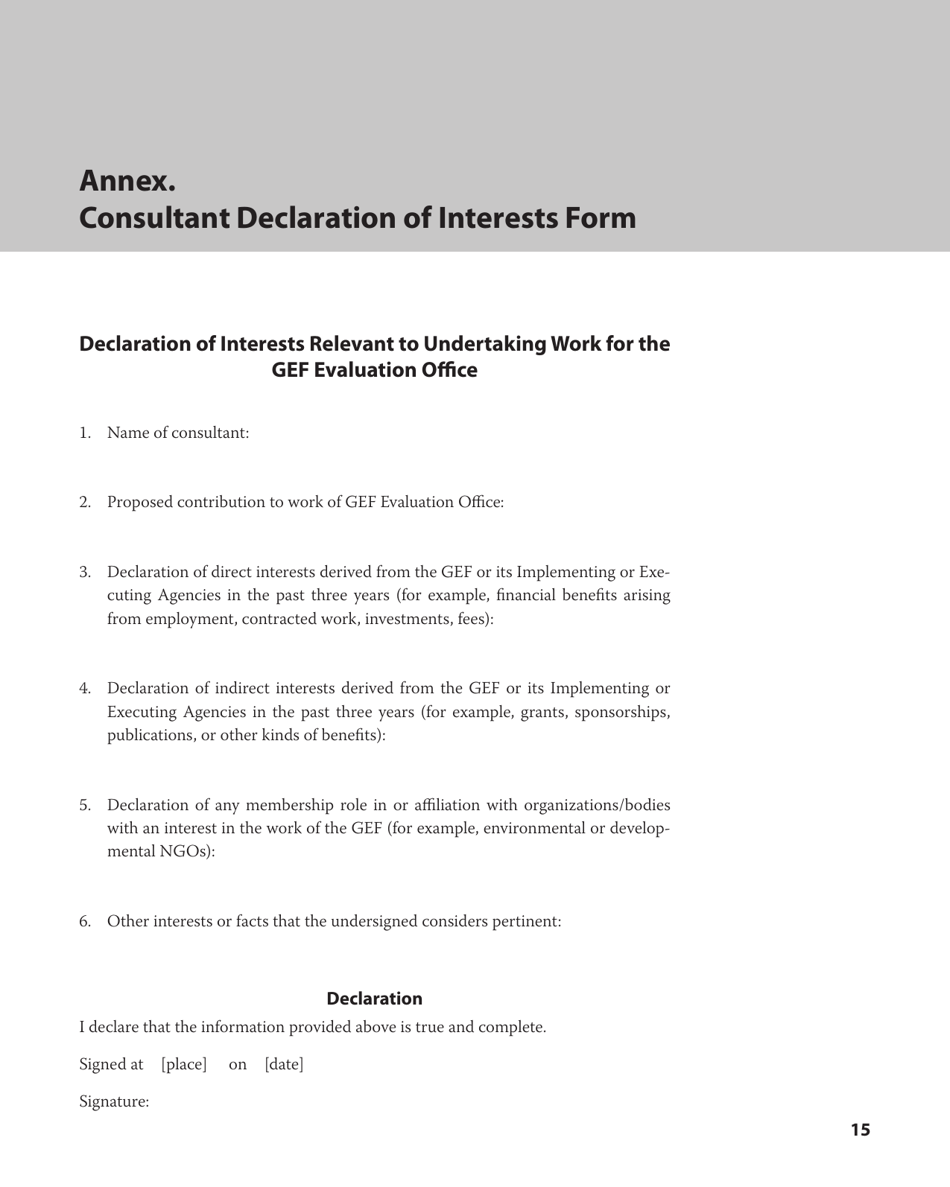Gef Evaluation Office Ethical Guidelines
The GEF (Global Environment Facility) Evaluation Office Ethical Guidelines are designed to ensure that evaluations conducted by the GEF are carried out in an ethical and unbiased manner. They provide guidance on principles, practices, and behaviors that evaluators should adhere to, such as transparency, integrity, independence, and respect for confidentiality. The guidelines aim to uphold the highest standards of professionalism and ethical conduct in the evaluation process.
The Gef Evaluation Office Ethical Guidelines are filed by the Global Environment Facility (GEF).
FAQ
Q: What are the Gef Evaluation Office Ethical Guidelines?
A: The GEF Evaluation Office Ethical Guidelines are a set of guidelines that outline the expected ethical conduct for individuals involved in GEF evaluations.
Q: Why are the Gef Evaluation Office Ethical Guidelines important?
A: The Guidelines are important to ensure that evaluations conducted by the GEF are carried out with integrity, transparency, and adherence to ethical principles.
Q: What are some key principles in the Gef Evaluation Office Ethical Guidelines?
A: Some key principles in the GEF Evaluation Office Ethical Guidelines include independence, impartiality, confidentiality, and conflict of interest management.
Q: Who is expected to follow the Gef Evaluation Office Ethical Guidelines?
A: The GEF Evaluation Office Ethical Guidelines are expected to be followed by GEF evaluation staff, consultants, and any individuals involved in GEF evaluations.
